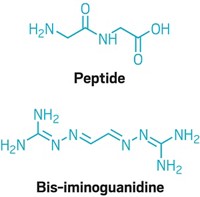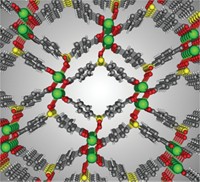Advertisement
Grab your lab coat. Let's get started
Welcome!
Welcome!
Create an account below to get 6 C&EN articles per month, receive newsletters and more - all free.
It seems this is your first time logging in online. Please enter the following information to continue.
As an ACS member you automatically get access to this site. All we need is few more details to create your reading experience.
Not you? Sign in with a different account.
Not you? Sign in with a different account.
ERROR 1
ERROR 1
ERROR 2
ERROR 2
ERROR 2
ERROR 2
ERROR 2
Password and Confirm password must match.
If you have an ACS member number, please enter it here so we can link this account to your membership. (optional)
ERROR 2
ACS values your privacy. By submitting your information, you are gaining access to C&EN and subscribing to our weekly newsletter. We use the information you provide to make your reading experience better, and we will never sell your data to third party members.
Environment
Carbonic Acid Could Be A Fix For Carbon
Simply reacting CO2 and water to form stable H2CO3 oligomeric solids could be a practical solution to carbon capture and sequestration
by Stephen K. Ritter
March 30, 2009
| A version of this story appeared in
Volume 87, Issue 13
To reduce the threat of global warming, it has become a foregone conclusion that practical and inexpensive methods for trapping and sequestering carbon dioxide are needed. Current techniques include using solutions of amines to strip CO2 from power-plant flue gases at high temperature and then pumping the CO2 deep underground or to the bottom of the ocean. But that approach requires large amounts of chemicals and energy. A new candidate for CO2 capture and sequestration could be carbonic acid, H2CO3, according to computational studies by John A. Tossell of the University of Maryland (Environ. Sci. Technol., DOI: 10.1021/es802393s). Although H2CO3 can be made by percolating CO2 through water, the weak acid is unstable and has a fleeting existence in solution and as a solid. But under the right conditions, H2CO3 takes advantage of weak hydrogen bonds to form oligomers, (H2CO3)n. Tossell took a closer look at available physical and spectral data on H2CO3 and made a series of calculations to determine that (H2CO3)n for n = 2–4 could form a sufficiently stable solid from only CO2 and water at low temperatures. Tossell is beginning to study the feasibility of low-cost, long-term CO2 storage via H2CO3 at the Renewable Energy Institute at George Washington University.





Join the conversation
Contact the reporter
Submit a Letter to the Editor for publication
Engage with us on Twitter